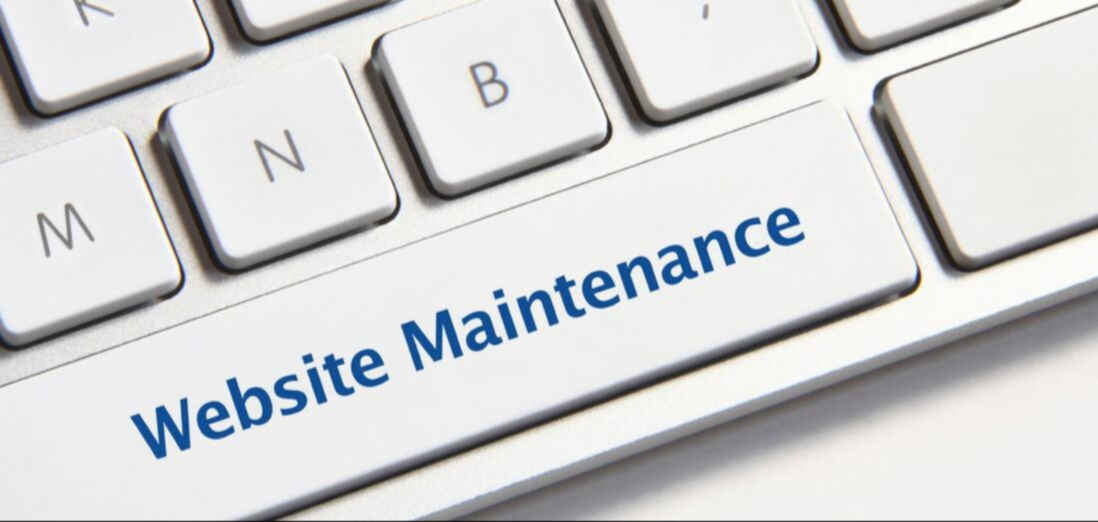Website Maintenance
What it is and
Why its Necessary
Website Maintenance is crucial to ensuring that your site is running at full capacity. Just like cars, websites require maintenance to operate properly. Properly maintaining your site helps to ensure site security, increase the number of new visitors, boost returning traffic, and more.
All about
Website Maintenance
Website maintenance refers to the ongoing process of regularly updating, managing, and optimizing a website to ensure its proper functioning, security, and relevance over time. Just like any other piece of technology or infrastructure, websites require maintenance to keep them running smoothly, secure from potential threats, and up-to-date with the latest content and features.
Website maintenance involves regularly updating content, software, and security measures to ensure a website runs smoothly, stays secure, and remains relevant to users. It includes tasks like content updates, security checks, performance optimization, and monitoring analytics to keep the site in good shape and aligned with business goals.
Website maintenance can involve several key tasks, including:
Overall, website maintenance is an ongoing effort to keep the website functioning optimally, secure from threats, and aligned with the organization's goals and user expectations. It helps businesses and individuals maintain a positive online presence and deliver a positive experience to their website visitors.
Website maintenance involves regularly updating content, software, and security measures to ensure a website runs smoothly, stays secure, and remains relevant to users. It includes tasks like content updates, security checks, performance optimization, and monitoring analytics to keep the site in good shape and aligned with business goals.
Website maintenance can involve several key tasks, including:
- Content Updates:
Regularly updating website content is crucial to keeping it fresh and relevant. This includes adding new blog posts, articles, images, product information, and any other information that needs to be changed or refreshed. - Software Updates:
Content Management Systems (CMS) and other software used to run websites regularly release updates to improve performance, fix bugs, and address security vulnerabilities. It's essential to keep the CMS and plugins/themes up-to-date to ensure the website is running smoothly and securely. - Security Checks and Updates:
Website maintenance involves implementing security measures to protect the website from potential threats, such as malware, hacking attempts, and data breaches. Regular security checks, updates, and backups help safeguard the website and its data. - Performance Optimization:
Optimizing website performance is essential for providing a smooth user experience. This may involve optimizing images, minimizing code, enabling caching, and ensuring fast load times. - Broken Link Checks:
Regularly checking for broken links and fixing them is crucial for maintaining a positive user experience and SEO health. - Monitoring and Analytics:
Keeping track of website traffic and user behavior through analytics helps identify areas for improvement and measure the website's performance. - SEO Maintenance:
Ongoing Search Engine Optimization (SEO) efforts help the website rank well in search engine results. This includes keyword research, meta tag optimization, and content improvements to enhance organic visibility. - Functionality Testing:
Regularly testing all website functions, such as forms, shopping carts, and navigation, ensures they work correctly and provide a seamless user experience. - Backups:
Regularly backing up the website's data and files is essential to safeguard against potential data loss due to technical issues or security breaches. - Legal Compliance:
Ensuring the website complies with relevant laws and regulations, such as data privacy and accessibility requirements, is part of the maintenance process.
Overall, website maintenance is an ongoing effort to keep the website functioning optimally, secure from threats, and aligned with the organization's goals and user expectations. It helps businesses and individuals maintain a positive online presence and deliver a positive experience to their website visitors.
Website Maintenance
Why it is Necessary
Website maintenance is crucial to keep the website secure, functional, and up-to-date. It ensures a positive user experience, improves search rankings, and builds trust with customers while complying with legal requirements and safeguarding data. Regular maintenance saves costs and helps make data-driven decisions for continual improvement.
Website maintenance is necessary for several important reasons:
In summary, website maintenance is necessary to ensure a website's security, performance, and relevance, while also fostering a positive user experience and building trust with customers. It helps businesses stay competitive, improve search engine rankings, and safeguard their online reputation, ultimately leading to better business outcomes.
Website maintenance is necessary for several important reasons:
- Security:
Regular maintenance helps keep the website secure from potential threats, such as hacking attempts, malware infections, and data breaches. Updates to software, plugins, and security measures patch vulnerabilities and protect sensitive information. - Optimal Performance:
Website maintenance includes performance optimization, which ensures fast load times and a smooth user experience. Fast-loading websites are favored by users and search engines, leading to better rankings and higher user satisfaction. - User Experience:
Keeping content up-to-date, fixing broken links, and ensuring all website functions work correctly contribute to a positive user experience. A user-friendly and functional website encourages repeat visits and fosters trust and credibility. - Search Engine Ranking:
Search engines, like Google, favor websites that are regularly updated, have fresh content, and follow best practices for performance and security. Website maintenance helps improve SEO and organic rankings. - Competitive Advantage:
In a competitive online landscape, a well-maintained website stands out. Regular updates and improvements show that the business is active, relevant, and cares about its online presence. - Customer Trust:
A website that functions well and has current information instills confidence in customers. A poorly maintained website can lead to doubts about a business's professionalism and reliability. - Business Reputation:
A poorly maintained website can negatively impact a business's reputation. Broken links, outdated information, and security issues can give the impression of neglect and may deter potential customers. - Data Backup and Recovery:
Regular backups are essential to safeguarding valuable website data. In case of data loss or website crashes, backups ensure that the website can be restored to its previous state. - Legal Compliance:
Website maintenance helps ensure compliance with relevant laws and regulations, such as data protection and accessibility requirements. Non-compliance can lead to legal issues and penalties. - Cost Efficiency:
Regular maintenance can prevent major issues that would require costly emergency fixes. By addressing minor issues proactively, businesses can save money in the long run. - Better Analytics and Decision-Making:
Website analytics provide valuable insights into user behavior and website performance. By monitoring and analyzing this data, businesses can make informed decisions to improve their website and marketing strategies.
In summary, website maintenance is necessary to ensure a website's security, performance, and relevance, while also fostering a positive user experience and building trust with customers. It helps businesses stay competitive, improve search engine rankings, and safeguard their online reputation, ultimately leading to better business outcomes.

